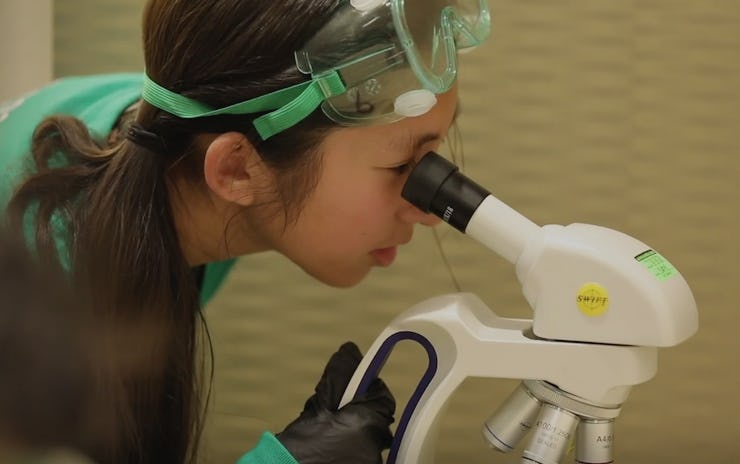When Earth runs on smarter plastics, we'll have teenagers to thank
In 2019, Inverse met a young "upcycling" enthusiast who created a more eco-friendly plastic.

When teenage scientist Jacqueline Prawira isn’t busy reading Harry Potter or practicing tae kwon do, she’s thinking about how to save the planet. She’s already well on her way: Prawira invented a new type of bioplastic derived from paper, cotton, and corn husks.
In January 2019, the then 14-year-old Prawira told Inverse that she focused her experiments on those three materials because they’re often thrown into landfills, and subsequently can wind up in waterways. She was able to extract cellulose fibers from these materials, creating a broken rice starch-based bioplastic that is strong and flexible.
This is #7 on Inverse’s 20 most incredible stories about our planet from 2019.
“I made my plastic this way so it can be a disposable plastic for items that we use in everyday life,” Prawira said. “That way, we can upcylce the garbage, instead of sending it to the landfill where it can end up in the ocean.”
Jacqueline Prawira presents her research.
Bioplastics, also known as bio-based plastics, aren’t made from the traditional Earth-polluting materials of your average plastic bottle or box, like petroleum. Scientists recently discovered that the sugar from plants can be broken down into molecules that can link together to form plastics. The hope is that by focusing on bioplastics instead of traditional plastics, scientists can reduce the carbon footprint of the myriad industries that rely on plastic.
In October 2019, Prawira — who describes herself as an “upcylcing” enthusiast — took home the Marconi/Samueli Award for Innovation at BROADCOM Masters, a youth science competition. With that achievement behind her, Prawira’s next goal is to develop a bioplastic that can fully degrade in the soil and in the ocean. She wants to help society beat the “plastics problem,” which she defines as our over-dependence on single-use plastic.
While young, Prawira speaks sagely about the issue. She knows that the plastics problem is going to catch up with humanity, and she wants to be proactive. She loves the process of looking for obtaining new knowledge and exploring questions that people haven’t asked yet — essential skills for a young scientist looking to make a difference.
As 2019 draws to a close, Inverse is revisiting the year’s 20 most incredible stories about our planet. Some are gross, some are fascinating, and others are truly incredible. This has been #7. Read the original article here.